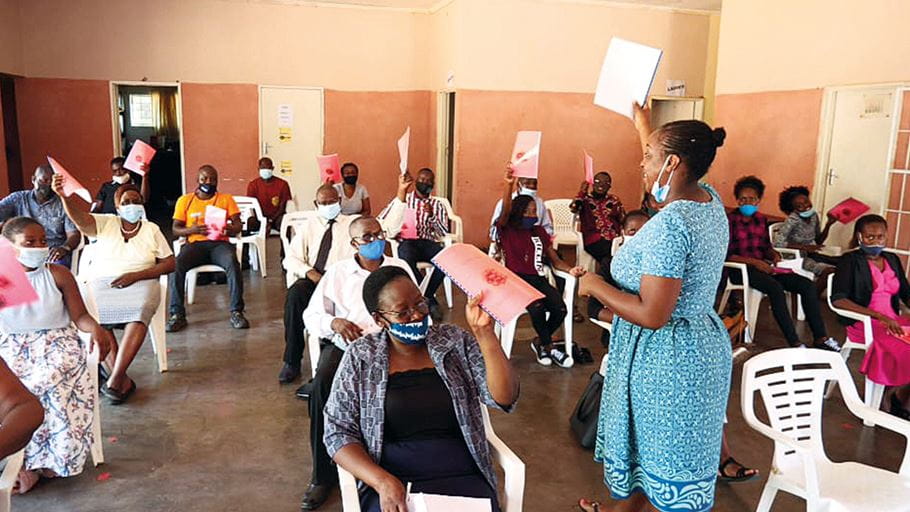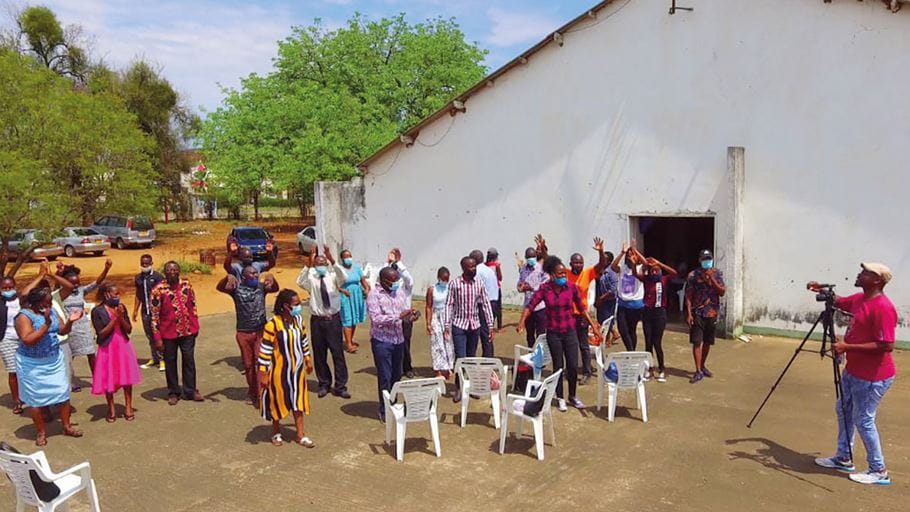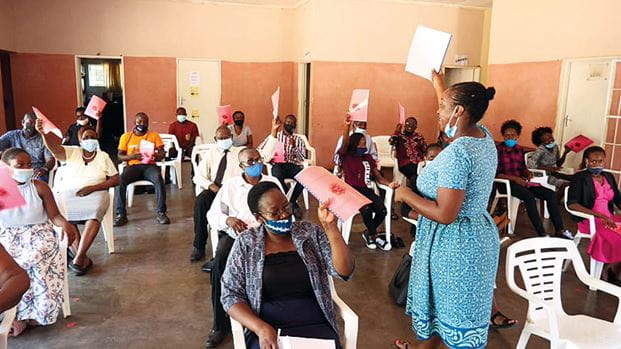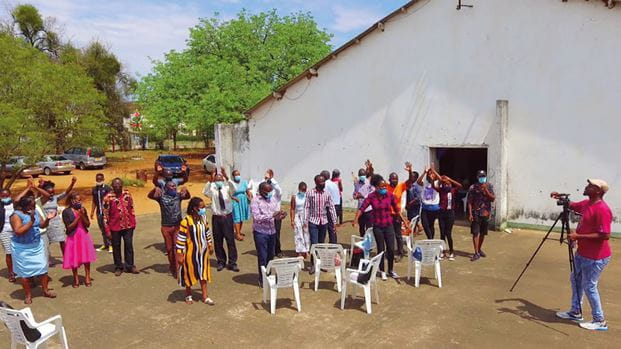‘The water tap at my house was dry for five years,’ says Livson Mponda in the town of Gokwe, Zimbabwe.
As a result, his family members had to walk two kilometres to fetch water from the river, and often his children would become unwell after drinking it. The only alternative was to buy water, which Livson could rarely afford to do.
Several church volunteers, known as community champions and trained by the Evangelical Fellowship of Zimbabwe, began to gather information about the water situation in Livson’s area. They then presented this information to the local council during a community feedback meeting. The council took their concerns seriously and restored the water supply.
Livson says, ‘The day the drops of water dripped from the tap marked a significant change in my life. I am really amazed by how the church acted as such an important force of development in this community; in a few months we achieved what we had failed to do for years.’
Gathering information
Community champions help their communities to understand their rights and responsibilities. They also monitor public spending and use other social accountability tools such as scorecards and citizen journalism to gather information about local problems and concerns (see Churches facilitating change).
One champion, Henry Madakadze, says, ‘When we use scorecards, people provide us with detailed and accurate information about water, sanitation and waste-collection services. We then meet with the town council and show them the information we have gathered. Council officials are very supportive of the work we are doing and it encourages them to take action.’
Nyasha Chikwamure, another champion, has been trained in citizen journalism. She says, ‘We wrote a story on refuse collection. We did not have a proper dumping site – the refuse was just piled up. After the story the council addressed the issue and now we have a proper site.’
Church leaders play an important role in the process. ‘After the training I was able to encourage my congregation to understand the constitution,’ says Pastor Tshabalala. ‘I taught them to be aware of their rights. I also advised them to be responsible towards their community, and to be responsible in paying their bills on time so that they get proper service delivery.’












